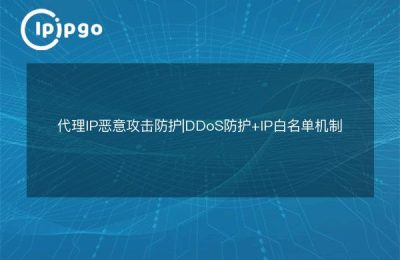
Why do you need a US Residential IP Proxy?
In Internet business, the geographic location of real users directly affects the operation results. For example, overseas e-commerce accounts need toLocalized Operations and MaintenanceSocial media promotions need to match specific regional user profiles, and some platforms also determine account authenticity based on IP addresses. U.S. residential IP proxies can provide a real home network environment, which is more difficult to identify than data center IPs, especially when the business needs to beMulti-State Independent IPWhen (for example, operating both New York and California accounts), such services become indispensable.
The Core Strengths of Native Original IP
There are two conditions that must be met for a true U.S. residential IP:Attributable home broadbandboth (... and...)No multiple transfers. Taking ipipgo as an example, their IP pool is directly connected to the local ISP provider and each IP corresponds to an actual physical address. Such native IPs are recognized as "normal home users" rather than "server room traffic" when accessing websites, effectively reducing the probability of triggering wind control. When testing, you can check the ASN number (Autonomous System Number) of the IP. The ASN of residential IPs is usually shown as carriers such as Comcast and AT&T.
How do you achieve multi-state IP customization?
Courtesy of ipipgoState Positioning Functions, the user can complete the operation in three steps:
- Select the "United States" country tab in the Proxy Control Panel.
- Check State Name Filter (supports multiple selection or exclusion of specific states)
- Set up IP switching rules (per time/per request/manual switching)
In particular, it should be noted that IP resources in Texas and Florida are relatively scarce, and it is recommended to check the real-time inventory in the background in advance. In actual use, it is recommended that multiple accounts for the same business be assigned to IPs in different states to avoid correlation risk.
Dynamic vs. static IP selection strategy
| typology | Applicable Scenarios | caveat |
|---|---|---|
| Dynamic Residential IP | Data collection, batch registration | Setting a reasonable switching frequency (10-30 minutes recommended) |
| Static Residential IP | Long-term number raising, payment verification | Bind device fingerprints for more security |
ipipgo supports a mix of both modes, such as logging into the main account with a static IP and performing specific operations with a dynamic IP. It is recommended that you use ipipgo for the first time via theFree Trialfunction to test the latency and success rates of the two types of IPs separately.
Frequently Asked Questions QA
Q: How do I verify if the IP is a real residential type?
A: Visit ipipgo's IP Detection page to view the ASN number and ISP information, and the residential IP will show up as the home broadband carrier instead of the data center name.
Q: How is the traffic distributed when IPs from multiple states are used at the same time?
A: Set the traffic weight ratio in the background, for example, assign 60% traffic to California IP and 40% to Washington State IP, and the system will automatically assign requests proportionally.
Q: What should I do if my IP is blocked by the target website?
A: Enable immediately on the consoleauto-replace policyThe IP pool of ipipgo will provide new available IPs within 2 minutes. It is recommended to adjust both the request frequency and User-Agent parameters.
Unique to ipipgo as a global residential agency service provider arePrecision control that supports state-level positioning, together with 90 million+ real home IP pools, can ensure business stability and meet the demand for fine-tuned operation at the same time. Especially for business scenarios that require multi-account management, it is recommended to adopt the "one account, one state" configuration scheme to minimize the associated risks.








